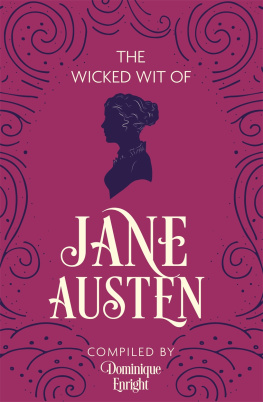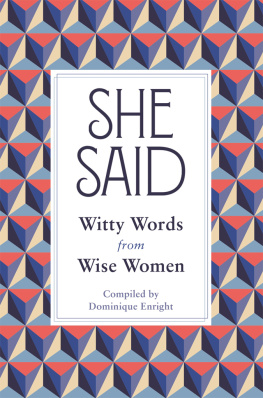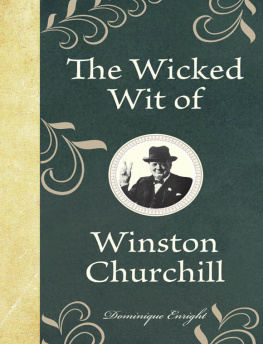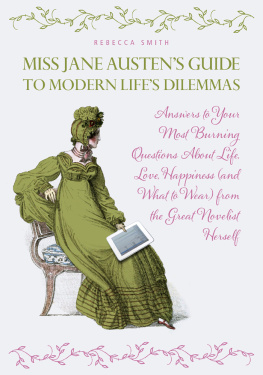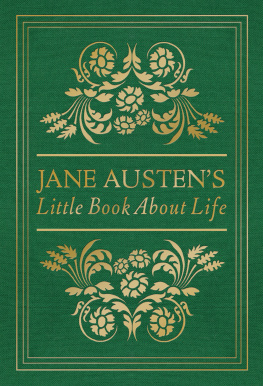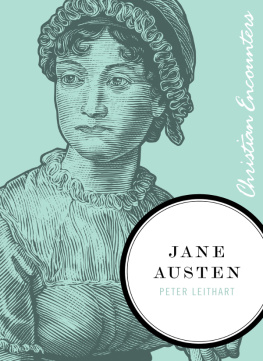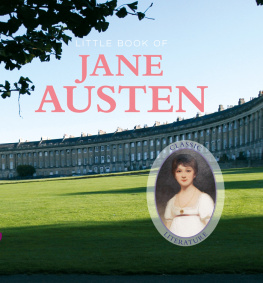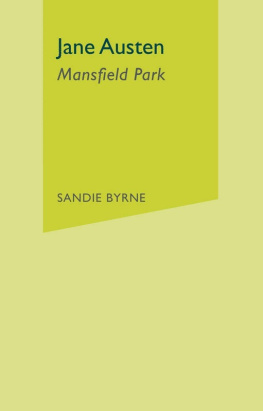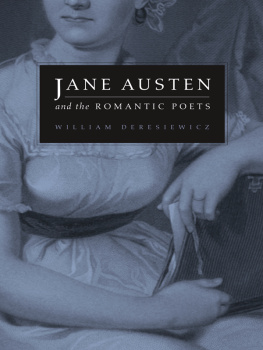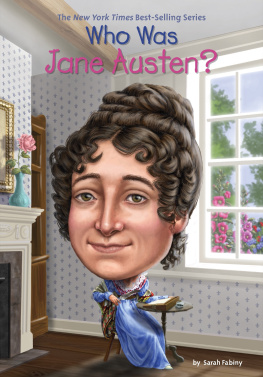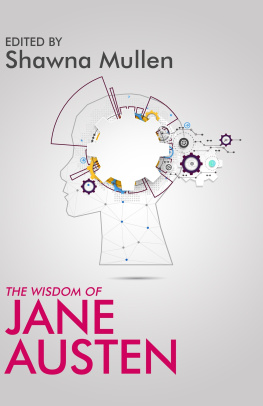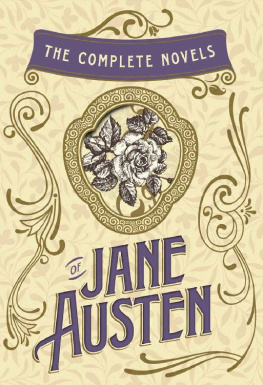
This revised edition first published in Great Britain in 2016 by
Michael OMara Books Limited
9 Lion Yard
Tremadoc Road
London SW4 7NQ
Copyright Michael OMara Books Limited 2002, 2011, 2016
All rights reserved. You may not copy, store, distribute, transmit, reproduce or otherwise make available this publication (or any part of it) in any form, or by any means (electronic, digital, optical, mechanical, photocopying, recording or otherwise), without the prior written permission of the publisher. Any person who does any unauthorized act in relation to this publication may be liable to criminal prosecution and civil claims for damages.
A CIP catalogue record for this book is available from the British Library.
ISBN: 978-1-84317-567-4 in hardback print format
ISBN: 978-1-78243-566-2 in paperback print format
ISBN: 978-1-84317-684-8 in EPub format
ISBN: 978-1-84317-685-5 in Mobipocket format
Cover designed by Ana Bjezancevic. Image of Jane Austen by Claire Cater and Julia Henze/www.shutterstock.com
Designed and typeset by Design 23
www.mombooks.com
Contents
J ane Austen was born in 1775 to a country parson, George Austen, rector of Steventon in Hampshire, and his wife Cassandra. The lively, generally happy family with eight children, six of them boys, lived in a ramshackle rectory, which they shared with several pupils of a school run by the Austens. The Mansion of Learning, wrote Mrs Austen, where we study all day. Except when we play seems to have been a cheerful place to grow up in, with much affection and laughter. The Austen sons were taught by their father along with the other boys; it was surely a matter for regret to Jane and her older sister Cassandra that they could not attend the school too though they must have absorbed a great deal of learning by osmosis. The education of girls at that time was limited, though Jane and Cassandra were sent to boarding school for a few years to learn what was considered the essential basics for young ladies. From 1786 they stayed at home, where their informal education was probably a great deal better. I think I may boast myself, with all possible vanity, the most unlearned and uninformed female that ever dared to be an authoress, Jane Austen later declared.
As is clear from her books she was neither. Brought up in an atmosphere of literary intelligence, surrounded by books of all kinds, a bright child could not but learn. Jane read widely and avidly especially eighteenth-century writers such as Johnson, Goldsmith, Richardson, Fielding, Fanny Burney, Sterne but she and the rest of her family also happily devoured the lighter novels of the day, novels of Terror and of Sentiment (the equivalents of todays paperback horror and romance) the absurdity of the plots of the sillier ones (which she parodied in her early spoofs and ridiculed in Northanger Abbey) providing a fine source of entertainment.
Of events her life was singularly barren: few changes and no great crisis ever broke the smooth current of its course, wrote Jane Austens nephew, James-Edward Austen-Leigh. And it has become accepted that Jane Austen led a very dull, sheltered life, a life ignorant of world events and of social deprivations, which she filled by writing books in which nothing much happens, that are a vehicle for sharp, witty comments on the narrow band of society she knew. Unremarkable as her life was, it was no more uneventful than that of most people: true, she never travelled abroad, but she had a huge extended family, and would often go to stay with some relation or other. She was fond of her many nieces and nephews, to whom she was a joyful and sympathetic companion: I have always maintained the importance of aunts, she once remarked.
Jane Austens life was not that removed from the wider world it would have been difficult not to be aware of the French Revolution and the Wars rumbling in the near distance, for instance, and she kept in constant touch with her army-officer brother and with her two naval-officer brothers on their travels. But Austen simply chose not to write about these subjects: 3 or 4 families in a country village is the very thing to work on, she wrote to her niece Anna, seeing in these few representative families, mainly country gentry, enough variety, enough of human vanities, frailties and foolishnesses, to reflect universal human traits.
From her letters it would seem as though her life was a mad social whirl accounts of balls, visits and parties proliferate, described with a combination of exaggerated fancy and detached amusement. But life was not that cosy poverty and illness presented a much greater threat especially to women than they do today. A middle-class woman was dependent upon her family or her husband. For a woman of any gentility to work for her living was virtually inconceivable hard times forced some to become, say, governesses, but there was little on offer.
Jane Austen was not without suitors. At length the day is come on which I am to flirt my last with Tom Lefroy, and when you receive this it will be over. My tears flow at the melancholy idea, she wrote flippantly to Cassandra, following the departure of a family friend. Yet she seems to have expected him to propose, and might well have accepted but did not press the matter when he had to go away, just mocking herself instead; another young man met one summer might have captured her heart, but he died before they could meet again. Was it the memories of these young men, or solidarity with Cassandra, whose heart was broken when her fianc died, that made her change her mind, when Harris Bigg-Wither, brother of friends of hers, proposed to her, and she accepted, only to tell him the next day that she had made a mistake and could not marry him? Or did she not want to lose the comparative freedom of her life, now that she was writing seriously, although very much in secret?
Along with meticulous observation and a keen eye for absurdity, it is a cool, dry irony that characterizes Jane Austens mature writing. An unrestrained delight in the eccentricities of human nature is very evident in her youthful writing, where often parodying the popular fiction of the day she allowed herself to be as silly and ridiculous as she wanted, producing innumerable jokey poems and high-spirited stories and skits to entertain her family and friends, or for them to perform. In her later writing the boisterousness has largely been replaced by wit sometimes so sharp that it is almost unnoticed but she did not entirely abandon the outrageously comic characters of her early work, merely refined them: Mr Collins in Pride and Prejudice, for example, is a caricature of fatuous and obsequious self-importance.
A keen watcher of other peoples behaviour, she noted their mannerisms, and with her alert mind saw easily through weaknesses, pretension and affectation. Living at the edge of country gentry her mother was quite well connected Jane Austen had many opportunities to observe the ways of the well-off and well-born. While she did not always admire their customs, she recognized and understood the power of social position and the security of money all too well her own family was far from affluent. But it is too easy to see her novels as merely comic mockery of mankind: there is also a strong moral thread running through them. The arrogant characters are brought down a peg or two; the greedy lose out, the wicked get what they deserve (even if it is no worse than a silly wife gained and a fortune lost), fools and hypocrites are shown to be fools and hypocrites, marriages for money or position, rather than based on love and affection, are shown to be empty, assumptions are dismantled.
Next page
